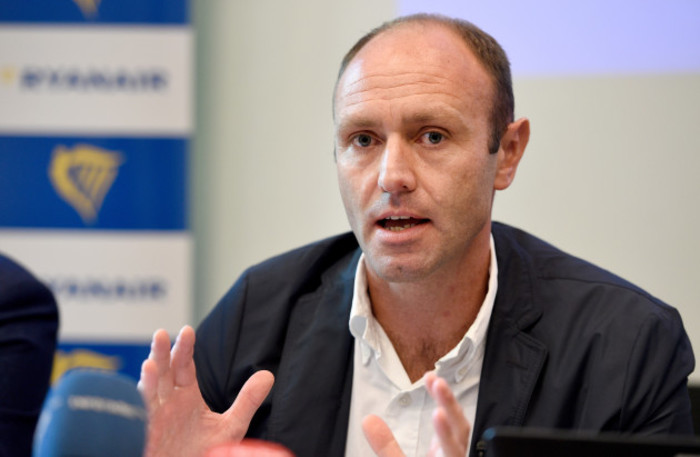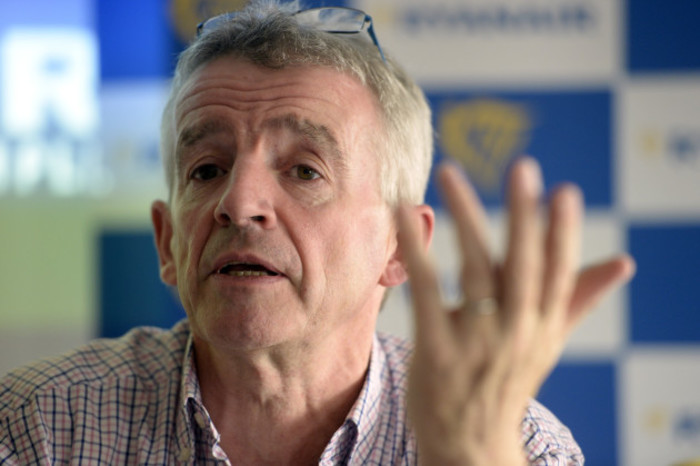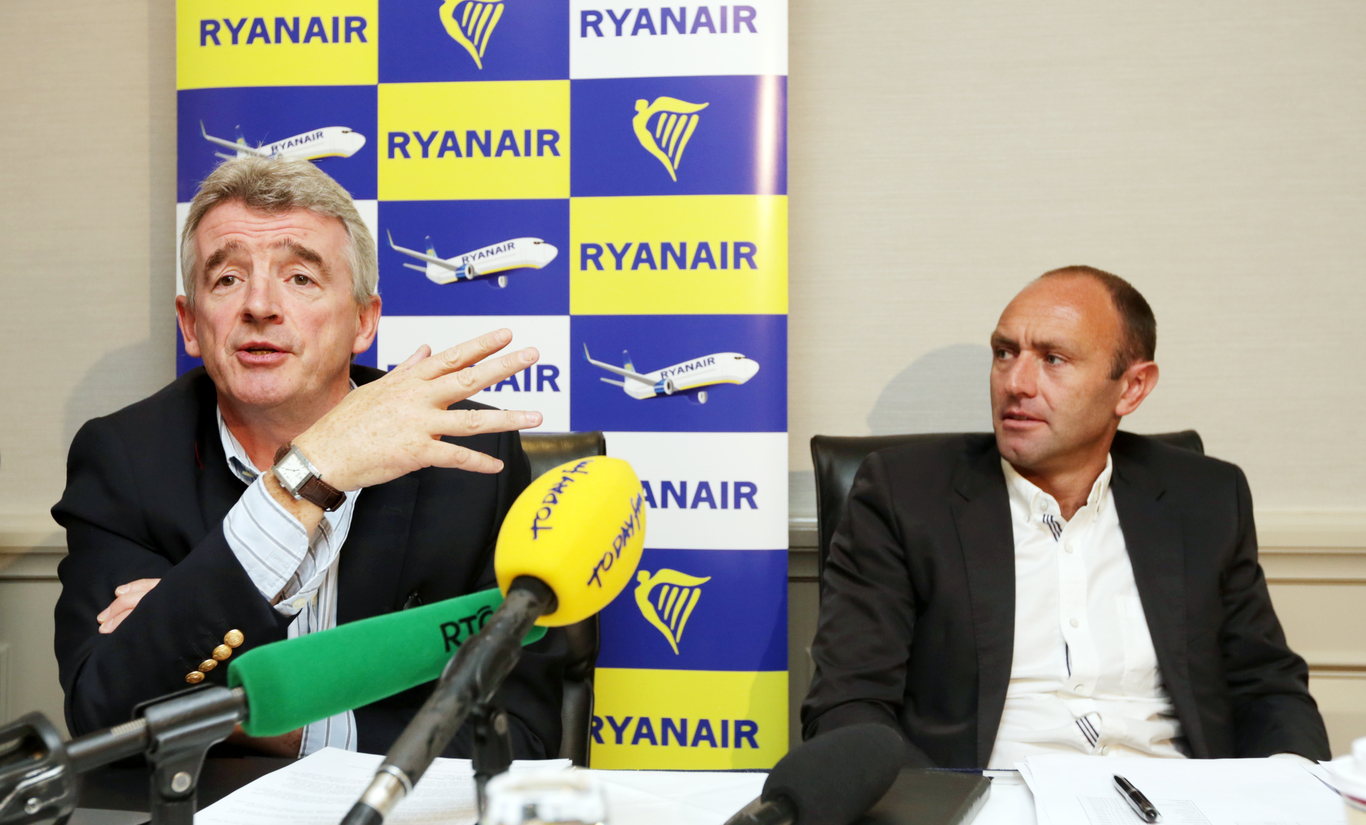Ryanair: 'Unfortunately, Brexit is in the hands of politicians who don't think rationally'
The airline’s chief marketing boss has lashed out at the UK government.
RYANAIR’S MARKETING CHIEF has lashed out at the UK government’s lack of a post-Brexit contingency plan for the aviation sector.
Speaking on Morning Ireland on RTÉ Radio One, Kenny Jacobs reiterated the budget airline’s call for clarity on what will happen to flight rights between the UK and European Union when Britain leaves the trade bloc.
As previously explained by Fora, Ryanair is concerned by the lack of attention that has been paid to the air travel industry as London negotiates an exit deal with Brussels.
If Britain falls outside Europe’s single aviation market – a cornerstone of the EU’s freedom-of-movement policy – the UK government may have to negotiate bilateral agreements with individual governments to maintain open air access.
Speaking today, Jacobs – who spent a number of years in Britain working for Tesco and price comparison website Moneysupermarket - said it was clear that the UK government “hasn’t got a plan” for what will happen to the aviation industry after Brexit.
“We need a new bilateral agreement as an alternative to Open Skies,” he said. “We don’t see that yet, even though we’re now a year after the referendum result. We will continue our call on the UK government to give us clarity.
“Unfortunately this is in the hands of politicians who don’t think rationally first.”
Jacobs said Ryanair has plans in place in case it needs to re-home its 85 aircraft based at UK airports.
“We will always be talking to other airports in other markets,” he said.
 Ryanair chief marketing officer Kenny Jacobs
Ryanair chief marketing officer Kenny Jacobs
Profit bump
Ryanair published its financial results for the three months to the end of June, which showed that the airline reported a profit after tax of €397 million, a 55% increase on the same period last year.
However, these results were heavily skewed by the fact that Easter fell in April this year, whereas the holiday fell in March in 2016. Overall revenues were up 13% compared to the same three-month last year to just under €2 billion.
Meanwhile, passenger numbers for the period increased 12% to 35 million passengers. Load factor – a key metric that measures the number of seats filled on flights – was 96%.

Click here to view a larger version
Commenting on the results, Jacobs cautioned that the airline is sensitive to any sharp movements in sterling.
“About 25% of our revenues are in sterling and about 20% of costs. We have a natural hedge within the business,” he said, adding that the company could be hurt by any “extreme movements” in the currency.
“We’ve had about 15% movement in sterling since (the Brexit vote). I think sterling may be a bit all over the place for the coming months because clearly the UK government hasn’t got a plan for our particular industry.”
Seating policy
Jacobs was also questioned about the controversy surrounding the budget airline’s allocated seating policy.
Passengers have complained in recent months about being split up even though their flight was not full, with many extra seats unavailable unless they paid extra to sit in them.
Ryanair boss Michael O’Leary – who blamed the controversy on a “whining, whingeing minority” – engaged in a fiery discussion with Joe Duffy on RTÉ Radio’s Liveline last week.
 Ryanair CEO Michael O'Leary
Ryanair CEO Michael O'Leary
Jacobs said today that it was inevitable there would be a heated argument on Duffy’s show “when you get two Trinity graduates, one left-of-centre, one right-of-centre, debating a topic”.
He said passengers will have indeed noticed a change in Ryanair’s random seat allocation but insisted “there is not a change in the policy”.
Jacobs blamed the shift on the airline’s algorithm that identifies unoccupied seats.
He said the number of passengers paying to choose their seats increased by 10% in the last three months to 50% of all passengers. That means an average of 18 more passengers on every flight are choosing to pay to select their seat.
“What we’re doing is responding to demand,” Jacobs said. “Yes, of course it’s a commercial opportunity.”






